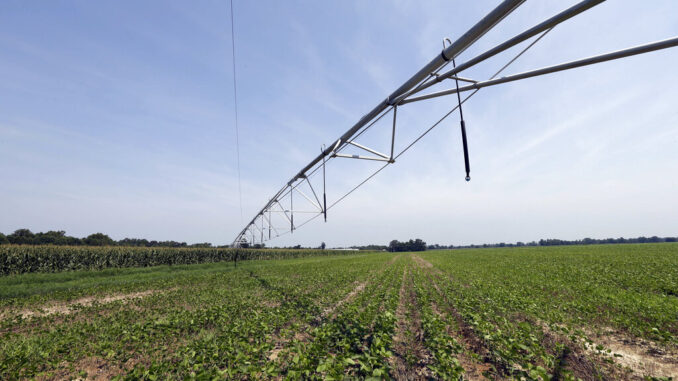

RALEIGH — North Carolina agriculture had a big year in 2023, including a big economic impact gain as well as budget investments in farmland preservation and key production and manufacturing areas.
North Carolina Agriculture Commissioner Steve Troxler kicked off this year with good news for the state during the 2023 North Carolina Agriculture Forum held in February.
Troxler told attendees he remained optimistic about the future of N.C. Agriculture and agribusiness; however, with rising inflation and increased costs, he worried about “people being able to afford it.
He also noted that 135,000 moved to North Carolina in the last year, ranking the state at number three in the nation for population migration. Urban areas like Raleigh and Charlotte were ranked second and sixth respectively for population growth.
Energy resources will also be strained by the state’s increasing population growth, Troxler said while also mentioning the recent rolling blackouts that hit portions of the state last December. He also mentioned the possible political ramifications for agriculture due to new residents coming in from out of state who have no grasp of the importance of farming in the state.
Agriculture is North Carolina’s top industry and accounts for one fifth of the state’s workforce and an economic impact figure of $103.2 billion for 2023 for agriculture and agribusiness in the state was unveiled by the N.C. Department of Agriculture and Consumer Services (NCACS) in mid-May. The previous year’s figure was $92.9 billion.
“When I took office in 2005, the economic impact of agriculture and agribusiness was $59 billion and $100 billion seemed like a good goal to work toward. In 2016, I made a prediction that North Carolina’s agriculture and agribusiness industry would soon reach $100 billion,” Troxler said in a press release on the economic impact figure.
“I’m proud to say that we’ve reached that goal and surpassed last year’s economic impact by more than 11%,” said Troxler. “Reaching this milestone is a big accomplishment for everyone in agriculture and agribusiness and proves how much we can accomplish when we are all pulling together.”
Troxler is the state’s second-longest-serving agriculture commissioner and only Republican to serve in that role. He looks to extend his 18-years in office having filed for reelection in 2024. The state’s longest-serving agriculture commissioner was Democrat James Graham, who served 36 years; from 1964-2000.
The 2023 Appropriations Act passed by the General Assembly also held good news for agricultural interests in the state, with agriculture and natural resource priorities investments of more than $363 million.
“Overall, I am pleased with the 2023-2024 State Budget and I am grateful for the legislature’s continued investment in and support of agriculture, agribusinesses and our farmers,” Troxler said in an emailed statement to North State Journal.
He continued, “Specifically, that includes $25 million in funding for Farmland Preservation efforts, which I believe is critically needed; $20 million in the Streamflow Rehabilitation Assistance Program, which is focused on reducing downstream flooding from tropical storms and hurricanes; $20 million for the N.C. Agriculture Manufacturing and Processing Initiative, a new project to attract and facilitate more agribusiness development; and, nearly $8 million in funding for our agricultural research stations.”
The topic of farmland preservation has been a key issue for Troxler throughout his 18-year tenure as the state’s agriculture commissioner.
Under the 2023 Appropriations Act, Farmland Preservation was allotted $10 million in year one and $15 million in year two in nonrecurring funds in the appropriations act.
Troxler said during the 2023 Forum that North Carolina is predicted to be 2nd in the nation for potential farmland loss by 2040, per a report by the American Farmland Trust.
The NC Chamber held its “Ag Allies” conference in early October this year which covered agribusiness and farmland issues.
This year’s keynote speaker was Agritech Capital President Aidan Connolly. His presentation, “Ag of the Future,” included Connolly’s vision of what he calls “agri-food in evolution.” Connolly’s remarks included the need for integrating data-driven technologies in farming to aid the increasing demand for food products using tools such as tablets, robots, ChatGPT, and AI as well as blockchain to 3D printing.
This past November, Troxler’s office opened up applications for farmland preservation grants funded by the N.C. Agricultural Development and Farmland Preservation Trust Fund.
Also in November, a new strategic initiative called “NC Ag Leads” was formed to support and the state’s agriculture industry and “identify, educate, and strategize” outside factors that could impact North Carolina. NC Ag Leads is a partnership between the Golden LEAF Foundation, the NC Chamber Foundation, the NC Farm Bureau and Google.



